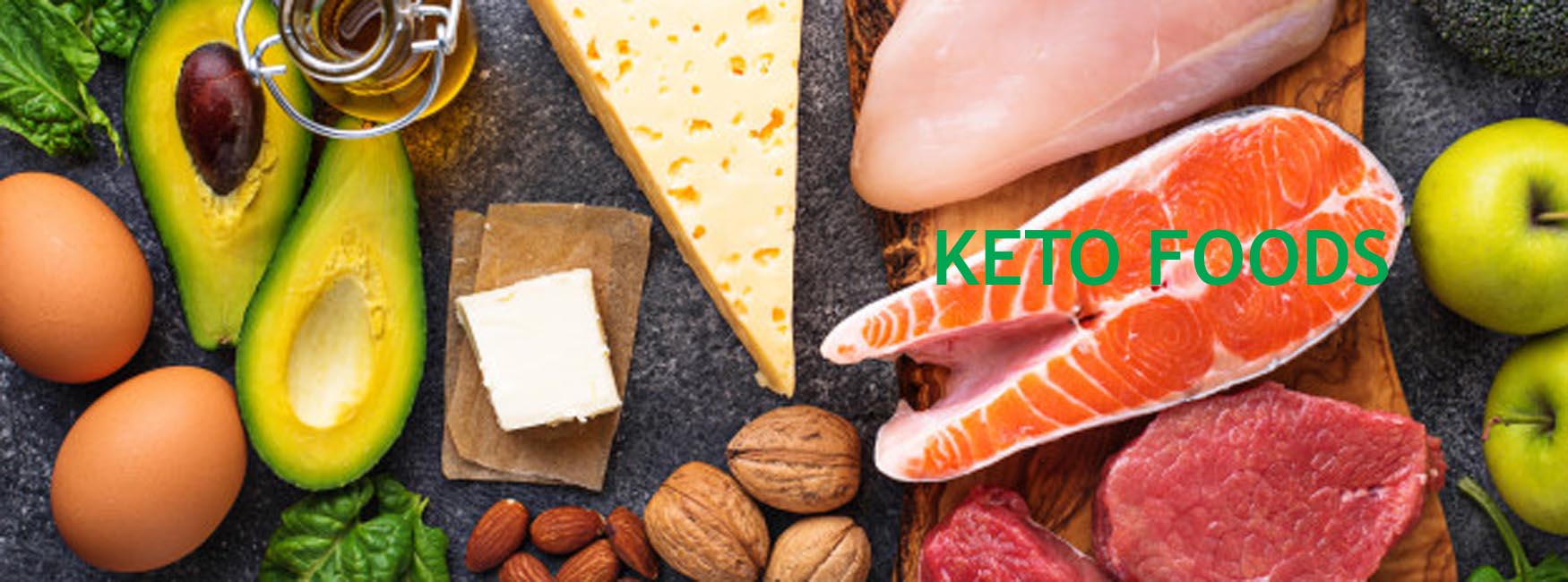The Keto Diet: Its Benefits and Risks
The "Keto Diet" has surfaced as the current rage for the best diet for weight loss, and according to many researchers it also has many health benefits. Animal studies indicate that the diet may have anti-aging, anti-inflammatory and cancer fighting benefits. There are now pills that you can take that will furnish the basic elements found in the process of ketosis without using a low carb and high fat diet that normally starts ketosis in the body. Can all of this be true?
More human studies are needed to track long term effects of the keto diet, also known as a ketogenic diet which produces ketosis. Can this natural process of ketosis be sustained for the long run? Are there medical problems associated with this diet, and are there other diets that can accomplish the same results for weight loss?
What is Ketosis?
The body that has been created for us has a built in system that allows us to stay alive and healthy when food is scarce and starvation is imminent. Normally, the fuel that the body engine runs on is glucose which is the main source of energy for all body functions. This energy is provided by the consumption of starches. Glucose needs of the brain function is about 60% of the total glucose supply. Protein and fats play a different role and will change form to provide energy when the ketosis process is implemented.
 The Keto diet will produce weight loss.
The Keto diet will produce weight loss.Ketosis starts when the body is in the starvation mode. In its purest form, it is an emergency life support that is not utilized for normal living.
Without any glucose being produced, the liver starts producing ketones for life giving energy. It does this by using the available fat in the body as a fuel source. When the fat is disposed of, the liver turns to muscle and tissue to continue producing ketones for energy. If food is not found soon and the body has been depleted of its stored energy, the body dies.
The Keto Diet
The keto or ketogenic diet, that is so popular today, stimulates the production of ketones and uses a large amount of fat that has harmful health consequences. Carbohydrates are severely restricted and protein is moderately restricted. Most individuals that try this type of diet do lose weight. The keto diet plan today is mainly 75% fat, 20% protein and 5% carbohydrates.
The keto diet food list is made up of:
- Eggs
- Poultry and meat
- Salmon, shellfish
- Yogurt, cottage cheese, cream cheese
- Butter
- Cream
- Full fat cheeses
- Nuts and seeds
- Nut butters
- Coconut oil and olive oil
- Avocados
The original diet was conceived by Dr. Russell Wilder at the Mayo Clinic in 1924 as a treatment for epilepsy in children. His premise was that the fasting effect of ketosis had an anticonvulsant effect. However, the starving or fasting effect of ketosis could not be sustained in young children without limiting their growth. Dr. Wilder's formula was 90% fat, 6% protein, and 4% carbohydrate.
The conclusion of the studies stated; the short term side effects of ketogenic diets included diarrhea, constipation and vomiting. All studies reported participants dropping out due to lack of improvement in seizures and poor tolerance of the diet.
 Fat consumption is very important to make the Keto diet work.
Fat consumption is very important to make the Keto diet work.When there is no other reasonable solution, the keto diet may be beneficial to help reduce epileptic seizures. About 30% of epileptic patients do not respond to medication. The alternative of brain surgery is not a good solution. If it helps to do the diet, go for it.
Dangers of Keto Diet
No human populations, with few exceptions, have ever lived on an exclusive ketogenic diet. The keto diets are especially dangerous for pregnant women and their developing baby. In the past, tribes such as the Inuit (Eskimo) that have lived on a high fat diet, did so as a result of a gene mutation that permitted them to adapt to a ketogenic diet. Even with this adaptive gene, there was a high mortality of the young because of the growth restricting properties of excess ketones.
The keto diet as a weight loss regimen is controversial. Many health care professional warn that this diet can have unpleasant side effects and health risks. Some doctors suggest avoiding the diet completely while others will allow proceeding only under their supervision. If the diet is not done correctly you may experience an unhealthy result.
The European Society of Cardiology did a study published in 2018 of the long term impact of low carbohydrate diets on mortality. It included almost 25,000 participants. They found that individuals on the lowest carbohydrate diet had the highest risk of cardiovascular, cerebrovascular and cancer mortality. The association between low carb diets and overall mortality was stronger for non-obese than obese individuals. Another meta-study of 447,506 participants confirmed the negative effects of a low-carb diet. These studies add to the growing evidence that show the harmful long term effects of the keto low carbohydrate diet.
An Overly Acid Body
Blood pH: One of the major problems that may occur with an increase of fats and animal protein is the body stays in an acid condition. An overly acid body can lead to all sorts of negative health conditions that are listed in the European report. The healthy pH of the blood is 7.365 - 7.4 which is slightly alkaline. This is the standard for maintaining good health. Blood pH lower than this becomes problematic when it falls in the acid range and can lead to ketoacidosis which can be fatal. You should check your pH periodically if using the keto diet.
Sustainability
The keto diet is very limited in the diversity of foods and is not for long term dieting. Most individuals become bored with the limited food options of fatty meats, fish, dairy, cheese, and oils as the main course every meal. Many will sooner or later go back to adding carbs, and as a result, if the calories are not managed, will gain back the weight that was lost. This is the normal diet pattern result.
Bone Loss
Bone fractures are one of the side effects of a keto diet. Children are at great risk along with growth stunting and kidney stones. The diet can put people in a state of "chronic acidosis" because ketones are acid forming. Ketosis can cause a steady loss of bone mass.
Athletic Performance
An official International Society of Sports Nutrition paper that reviews the keto diet states that the diet has an "ergolytic" effect on high and low intensity workouts. Ergolytic means athletic impairing performance. Marathon runners may get some benefit from excess fat in the body that is converted to ketones when the glucose and glycogen supplies are depleted.
Losing Weight
Weight loss seems to be the main reason for using the keto diet. There are many avenues to achieve the goal. Recommending any type of diet that will achieve this goal is reckless to say the least. You could smoke cigarettes, adopt a good meth habit, or get some kind of illness that would produce effective weight loss. There is a better way than trying to lighten the load of your pall bearers.
Here is a brief summary of the risk of a keto diet.
SHORT TERM
- Increases LDL - Cholesterol
- Impaired Glucose Tolerance
- Worsening Kidney function
- Reduced Athletic Performance
- Bone Loss
- Vitamin and Mineral Deficiencies
- Constipation
- Weakness, Fatigue
- Bad Breath
LONG TERM
- Increased All - Cause Mortality
- Increased Exposure to elements such as Dioxins and PCBs that induce metabolic disorders and increase risk of birth defects
- Impaired Artery Function
- Increased total LDL - C
- Kidney Stones
- Nutrient Deficiency
- NAFLD, Hipatic Steatosis
This nine minute video goes into details of the studies of the keto diet problems.
As a healthy alternative to a keto diet, why not use a whole foods plant based diet?
If you check out the Blue Zones, you will find that people that eat the highest portion of carbs and the lowest amount of animal products have the lowest mortality.
The food types for the "Blue Zones" where people live the longest ages are:
- FAT - 25% (plant & animal)
- PROTEIN - 12% (includes plant & animal protein)
- CARBOHYDRATES - 62%
The benefits are awesome and you will not suffer the effects of a prolonged ketone energy source to fuel your body.
Explore more...
- The Protein Myth - is the idea that animal products are the only way to get quality protein.
- Healthy Weight Loss - On a successful and healthy weight program you do not worry about counting calories.
- The pH of Food - to maintain a balanced pH in your blood and tissues, you should eat 70 - 80 percent alkaline foods and not more than 20 - 30 percent acid foods daily.





